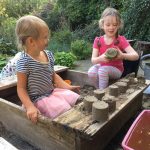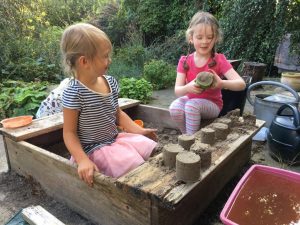Introduction
I’ve always approached life from the perspective that if your mind is well, bodily health will follow. And this does seem to be true. But what about the epidemic of children with ADHD, Asperger’s, Tourette’s, allergies and learning disorders? Are they all mentally disturbed? That seems unlikely. There seems to be another important theme – a basic clean diet and functioning immune system are also essentials of bodily health.
A personal story
Sometimes the body doesn’t function well because of what gets put into it, and then it needs extra attention. I was recently reminded of a time when I was extremely sick myself, and the doctors didn’t know what to do. Having done a CAT scan, EEGs, numerous blood tests and other studies, they pronounced my inability to lift my head off my pillow or cut a loaf of bread “psychogical” and said they couldn’t help me. I was still unable to think, couldn’t digest anything and was so tired and weak I could hardly make it to the bathroom. My will was strong as iron but I felt as if I was disintegrating physically. I had searing pains in my head and back and could hardly string a sentence together – I kept telling the doctors my brain felt poisoned.
As it turned out later, this was probably true. I actually had candida through my digestive system following several courses of antibiotics for typhoid, as well as mercury poisoning from 8 vaccines which i had had within a two week period to prepare for travel abroad – a fact which the doctors did not find significant. Sitting in the doctors surgery clutching my belly and my head i tried to explain that it was a problem with my gut and my head. The fact that i collapsed into bed the day of the second lot of vaccinations semed to pass by unheeded. I was sent home. Fortunately I had a dream about a book that lead me to an elimination diet. Within three weeks of a wheat, dairy and sugar free diet, I was back in the gym. I was astounded. It was a long time before I was fully better, and a long struggle with the Candida in my whole gut for which I had to take two three month courses of the antifungal Nystatin – prescribed by a homeopathic doctor. A short while later my mind cleared. However I did get better from a situation in which several had hinted I might die. It wasn’t until years later that I found craniosacral therapy, which helped release the tensions in my head that had caused so much pain. It took me over ten years to get back to normal. It must be even worse for young children who have these kind of symptoms and can’t develop. The science validating my sense of the gut-brain connection didn’t become public until ten years later, but even now that we have this crucial information, it seems that it is still being overlooked by many.
So what about the sick children?
The issues that have prompted me to share this experience are that more and more children that are brought to me extremely sick are not being treated on any kind of dietary level, and I puzzled as to why not. When I was ill i only had my own experience of my body to go on, but in 2014 we have hard evidence from stool and gut flora tests on large groups of children. Dr Natasha Campbell-Bride states that
“The mixture of toxicity in each child or adult can be quite individual and different. But what they all have in common is gut dysbiosis. The toxicity, which is produced by the abnormal microbial mass in these people, establishes a link between the gut and the brain. That is why I have grouped these disorders together and gave them a name: the Gut and Psychology Syndrome (GAP Syndrome). The GAPS children and adults can present with symptoms of autism, ADHD, ADD, OCD, dyslexia, dyspraxia, schizophrenia, depression, sleep disorders, allergies, asthma and eczema in any possible combination. These are the patients who fall in the gap in our medical knowledge. Any child or adult with a learning disability, neurological or psychiatric problems should be thoroughly examined for gut dysbiosis. Re-establishing normal gut flora and treating the digestive system of the patient has to be the number one treatment for these disorders, before considering any other treatments with drugs or otherwise.”
There is a wealth of information available about Gut and Pshychology Syndrome – GAPS – a term coined by Dr Campbell-McBride to describe what i was trying to talk to doctors about twenty years ago, which happens when the balance of healthy and unhealthy bacteria in the gastro-intestinal tract get out of balance. This can be due to taking several courses of antibiotics, which disturb the gut flora and allow unhealthy bacteria to proliferate. There are other factors like the birth process, the mother’s gut flora during pregnancy, vaccinations and then how much sugar and additives a child eats daily that can all lead in the same direction. Children living at the current time face further hazards because the amount of chemical pollution in the air, in food and water increase daily. If their body’s ability to detoxify is compromised, as described below, then they really struggle with the extra modern environmental load.
What goes wrong in the gut?
The corrective diet is based on the theory that many disorders, including autism and ADHD, are caused by imbalance in the microflora or probiotics of the digetsive tract. ?When the balance of the gut is disturbed, overgrowth of microbes creates inflammation and immune dysregulation. This situation is similar to a sprained ankle. There is swelling that puts pressure on all the cells in the area. Swelling in the digestive tract allows material from the digestive tract to escape. This is often described as “leaky gut”. Harmful or undesirable microbes can also migrate to the small intestine where they compete for nutrients and disrupt digestion by damaging enzymes needed to break down food (like GLUTEN, CASEIN, SOY AND CORN).? ? Carbohydrates, that are not completely digested, stay in the digestive tract and become “food” for unhealthy microbes. As the microbes digest the leftover carbohydrates, the fermentation damages the digestive tract.
The effects of gut imbalance
According to Dr Campbell-McBride,
“The most common pathogenic microbes shown to overgrow in the digestive systems of children and adults with neuro-psychiatric conditions are yeasts, particularly Candida species. Yeasts ferment dietary carbohydrates with production of alcohol and its by-product acetaldehyde. Let us see what does a constant exposure to alcohol and acetaldehyde do to the body.
- Liver damage with reduced ability to detoxify drugs, pollutants and other toxins.
- Pancreas degeneration with reduced ability to produce pancreatic enzymes, which would impair digestion.
- Reduced ability of the stomach wall to produce stomach acid.
- Damage to immune system.
- Brain damage with lack of self-control, impaired co-ordination, impaired speech development, aggression, mental retardation, loss of memory and stupor.
- Peripheral nerve damage with altered senses and muscle weakness.
- Direct muscle tissue damage with altered ability to contract and relax and muscle weakness.
- Nutritional deficiencies from damaging effect on digestion and absorption of most vitamins, minerals and amino acids.
- Deficiencies in B and A vitamins are particularly common.
- Alcohol has an ability to enhance toxicity of most common drugs, pollutants and other toxins.
- Alteration of metabolism of proteins, carbohydrates and lipids in the body.
- Inability of the liver to dispose of old neurotransmitters, hormones and other by-products of normal metabolism. As a result these substances accumulate in the body, causing behavioural abnormalities and many other problems.
Acetaldehyde is considered to be the most toxic of alcohol by-products. It is the chemical, which gives us the feeling of hangover. Anybody who experienced a hangover would tell you how dreadful he or she felt. Children, who acquire abnormal gut flora with a lot of yeast from the start, may never know any other feeling. Acetaldehyde has a large variety of toxic influences on the body. One of the most devastating influences of this chemical is its ability to alter the structure of proteins. Acetaldehyde – altered proteins are thought to be responsible for many autoimmune reactions. Children and adults with neuro-psychiatric problems are commonly found to have antibodies against their own tissues.”
That is one long and wide-reaching list of sysmptoms. Isn’t it asstounding that many of the symptoms that children with learning disorders experience, such as foggy brain, not being able to think or speak, inability to concentrate, co-ordinate their movement, involuntary muscle movements are all symptoms of digestive dysfunction and consequent central nervous sytem breakdown? When we look at the link between digestion and the brain function it becomes clear that in this whole spectrum of childhood symptoms, tackling diet can be a very useful start to improving bodily health and reducing symptoms. If substances are blocking and affecting nerve fucntioning int he brain, then those substances need to be removed urgently.
How can we tell if a child may have gut issues?
Even without medical tests, there are obvious physical symptoms like bloating, stomach-ache and frequent farting. Tiredness, lethargy, emotional swings, black circles under the eyes, and rough or lumpy facial skin are also common. From a simple practical perspecitve, when i look at a child i can sense immediately if they have internal disconnects. They don’t respond as fast, often have a foggy look around their eyes, move clumsily and just don’t seem all there.
Yesterday i was in the park with my sister’s son and his friend. I commented that the other boy seemed in quite a state, and she said he had recently had another lot of vaccinations and had been quite out of sorts since. She could see what i was describing – in her words “yes even i can see that broad as daylight”. These children need help and they need the adults around them to notice that there is a problem.
When children are diagnosed with a condition like Tourette’s which is said to be “untreatable” (not the case in my personal experience), the first place to look would be diet and gut health. Once gut health is restored and the immune system has been boosted symptoms are likely to imrpove. It just makes sense. Even if you doubt the science, it is worth following these procedures and taking the improvements in your child’s health as evidence that you are doing the right thing.
If symptoms don’t improve significantly, it is worth doing a general bodily detox for heavy metals. Again, you can google this online. It just involves taking certain supplements. If the body’s ability to detox is severely impaired, this may get it going again. Isn’t that a bit extreme? I hear you wonder. Yes, it does seem unlikely and shocking that a child as young as 8 or 9 years of age should need to detox their body. However the effects of vaccines, mercury fillings and heavy metals ingested form food can be extremely strong in some children, and the mercury that lodges in the brain really seems to impair cognitive function. I have no evidence for this other than the experiments I have done on myself, and my observations from watching what happens to people’s ability to think, their bodily ability to detox and their general levels of energy and well-being when they do a mercury detox. But isn’t that enough?
We are what we eat – literally – and I think that the modern generation of western children sadly demonstrate that what is being eaten is sub-standard and a least partly toxic. Processed foods are not foods – they are mainly preservatives and additives – ie toxins. You only have to look at the figures for ADHD, Asperger’s, Autism and so on and realize how rapidly they have increased in the last decade to begin to wonder. Can it really just be that busy working parents are neglecting their children? It’s not likely to be the only factor. All these conditions seem to affect the central nervous system, in ways like those described by the effect of GAPS.
So if you have a child, or are yourself suffering from excessive tiredness, foggy thinking, inability to concentrate, low level depression, bloated stomach and gas, and difficutly digesting then take a look on the internet and inform yourself about a basic wheat, dairy and sugar free diet. It is also helpful to get a Candida test done, so that you know the extent of candida overgrowth in your gut. If so, you need to treat it as its very unlikely to die off completely just through diet. Supplement the diet with a good probiotic, omega 3s from a non-mercury contaminated source, and and grapefruit seed extract or another natural antimicrobial. If you or your child have cognitive issues, you also need to include all the B vitamins, especially vitamin B3, B6 and B12 (methylcoblamin), vitamin C, E and selenium to boost the immune system, MSM or alpha lipoic acid to get the detoxification process going again. These are the basics things to look at, but you will need to look up your own information. You may also need more specialist information on doing liver or kidney cleanses, but they are all available online, as well as from a variety of alternative health practitioners. Don’t listen to people who say it doesn’t help, because it does, it can really make all the difference in most cases, and can even safe your life.
Some useful websites for the basic information are:
www.gaps.me/?page_id=20 – basic info on the gut-brain connection to get you motivated
http://tariganter.wordpress.com/2012/08/10/anti-fungal-treatment-for-candida-and-intestinal-yeast-overgrowth/ – useful information on natural antifungals and nystatin protocol
There will be more information about healing childhood issues in my forthcoming book: Sensing Children. To find out about publication and follow new developments, please see my facebook page: Facebook/Mira-Watson-Author for more parenting and child health information.
All rights reserved. Mira Watson, April 24th, 2014
Please feel free to share this article, but please give credit to the author. Thank you




{ 1 comment… read it below or add one }